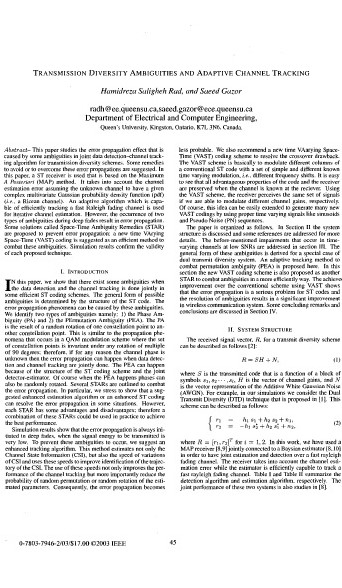Transmission Diversity Ambiguities and Adaptive Channel Tracking
Abstract
This paper studies the error propagation effect that is caused by some ambiguities in joint data detection-channel tracking algorithm for transmission diversity schemes. Some remedies to avoid or to overcome these error propagations are suggested. In this paper, a ST receiver is used that is based on the maximum a posteriori (MAP) method. It takes into account the channel estimation error assuming the unknown channel to have a given complex multivariate Gaussian probability density function (pdf) (i.e., a Rician channel). An adaptive algorithm which is capable of efficiently tracking a fast Raleigh fading channel is used for iterative channel estimation. However, the occurrence of two types of ambiguities during deep fades result in error propagation. Some solutions called space-time ambiguity remedies (STAR) are proposed to prevent error propagation; a new time varying space-time (VAST) coding is suggested as an efficient method to combat these ambiguities. Simulation results confirm the validity of each proposed technique.

